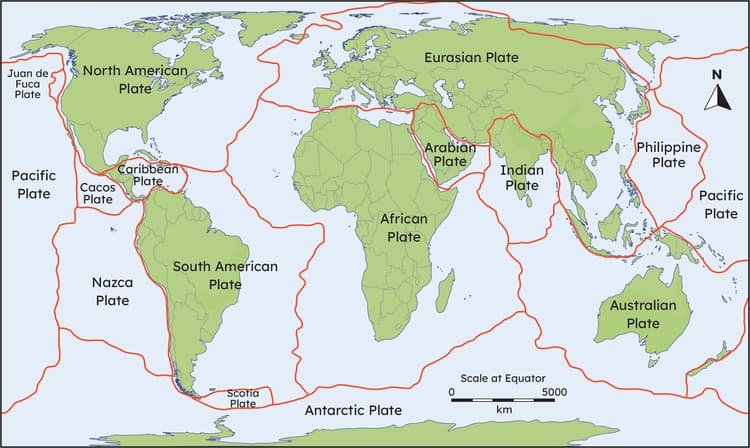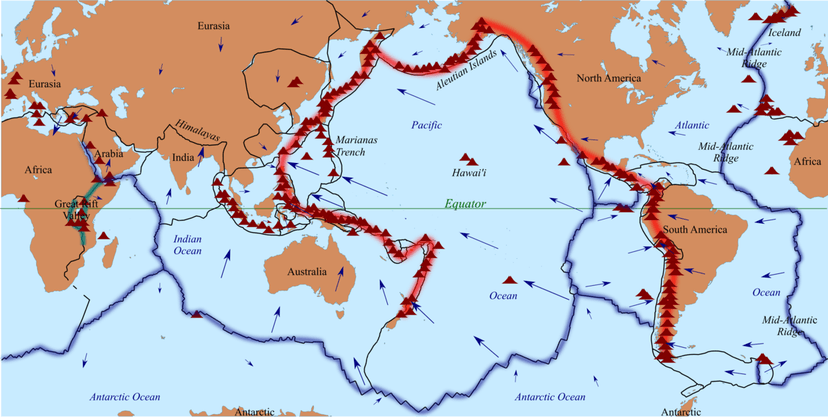Myths about teaching can hold you back
- Year 4
Living near volcanoes
I can describe and explain the impact of volcanic eruptions on people and understand why some people choose to live near volcanoes.
- Year 4
Living near volcanoes
I can describe and explain the impact of volcanic eruptions on people and understand why some people choose to live near volcanoes.
These resources were made for remote use during the pandemic, not classroom teaching.
Switch to our new teaching resources now - designed by teachers and leading subject experts, and tested in classrooms.
Lesson details
Key learning points
- One in twenty of the world’s population live close to an active volcano.
- Advantages include the cultivation of fertile soils, income from tourism, mineral extraction and geothermal energy.
- Disadvantages include the danger posed to people and communities from the eruption of lava, poisonous gases and ash.
Keywords
Minerals - Minerals are chemical substances that are formed naturally and are found in the ground or in rocks.
Geothermal energy - Geothermal energy comes from heat contained within Earth's crust.
Lahar - A lahar is a mudflow formed when volcanic ash mixes with water (rain or melted glacier ice).
Common misconception
It is difficult for pupils to appreciate that decisions people make are not always freely chosen.
To ensure pupils appreciate the significance of socio-economic factors (including income) that can limit people's choices.
To help you plan your year 4 geography lesson on: Living near volcanoes, download all teaching resources for free and adapt to suit your pupils' needs...
To help you plan your year 4 geography lesson on: Living near volcanoes, download all teaching resources for free and adapt to suit your pupils' needs.
The starter quiz will activate and check your pupils' prior knowledge, with versions available both with and without answers in PDF format.
We use learning cycles to break down learning into key concepts or ideas linked to the learning outcome. Each learning cycle features explanations with checks for understanding and practice tasks with feedback. All of this is found in our slide decks, ready for you to download and edit. The practice tasks are also available as printable worksheets and some lessons have additional materials with extra material you might need for teaching the lesson.
The assessment exit quiz will test your pupils' understanding of the key learning points.
Our video is a tool for planning, showing how other teachers might teach the lesson, offering helpful tips, modelled explanations and inspiration for your own delivery in the classroom. Plus, you can set it as homework or revision for pupils and keep their learning on track by sharing an online pupil version of this lesson.
Explore more key stage 2 geography lessons from the Mountains and volcanoes: what, where and why? unit, dive into the full primary geography curriculum, or learn more about lesson planning.

Content guidance
- Depiction or discussion of violence or suffering
Supervision
Adult supervision required
Licence
Prior knowledge starter quiz
6 Questions
Q1.What is a volcano?
Q2.Huge pieces of Earth's crust, shown on this map, are called...

Q3.True or False: all volcanoes are dangerous
Q4.The red highlighted horse-shoe shaped line on this map is home to 75% of Earth's volcanoes. What is it called?

Q5.Volcanoes are formed when two tectonic plates come towards one another. What is the geographical term for this?
Q6.When a volcano explodes, the geographical name for this is a volcanic...
Assessment exit quiz
6 Questions
Q1.How many people live very close to an active volcano?
Q2.Volcanic ash is....
Q3.A mudflow formed when volcanic ash mixes with water (rain or melted glacier ice) is called...
Q4.What temperature can lava reach up to?
Q5.Graphite is a solid, black rock found in volcanoes. When volcanoes erupt, graphite crystallises under the extreme heat and pressure inside volcanic vents. This changes graphite into....
Q6.Match the advantage to the correct statement.
volcanic soils are very fertile which helps crops grow.
millions of people visit volcanoes each year. This generates income.
this can be transferred into electricity.


